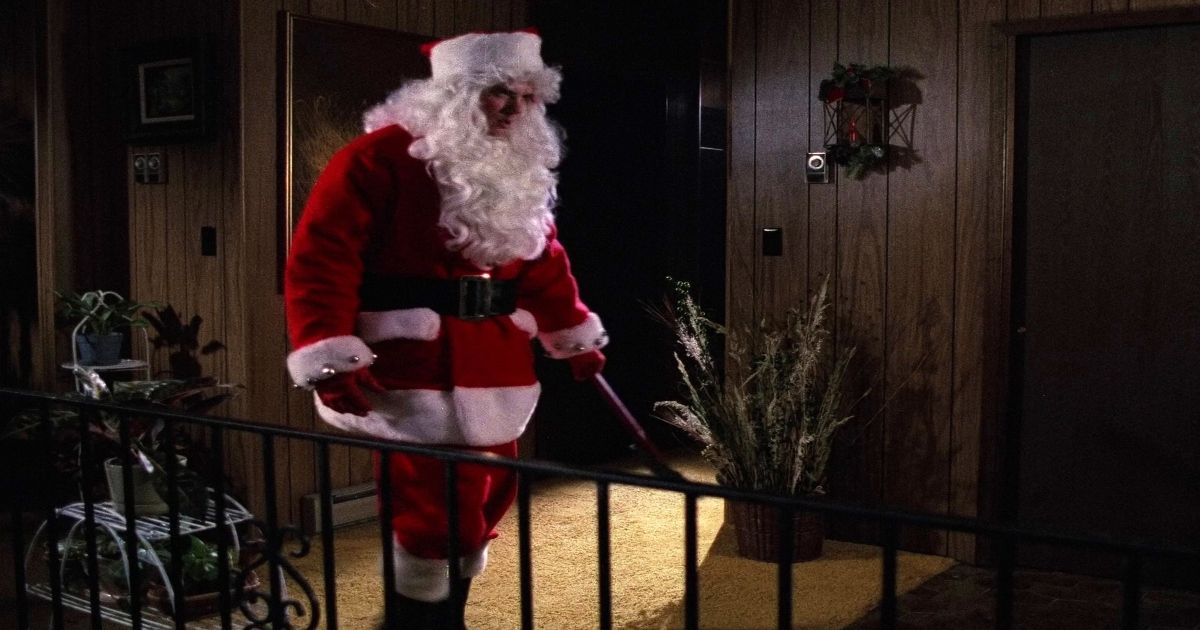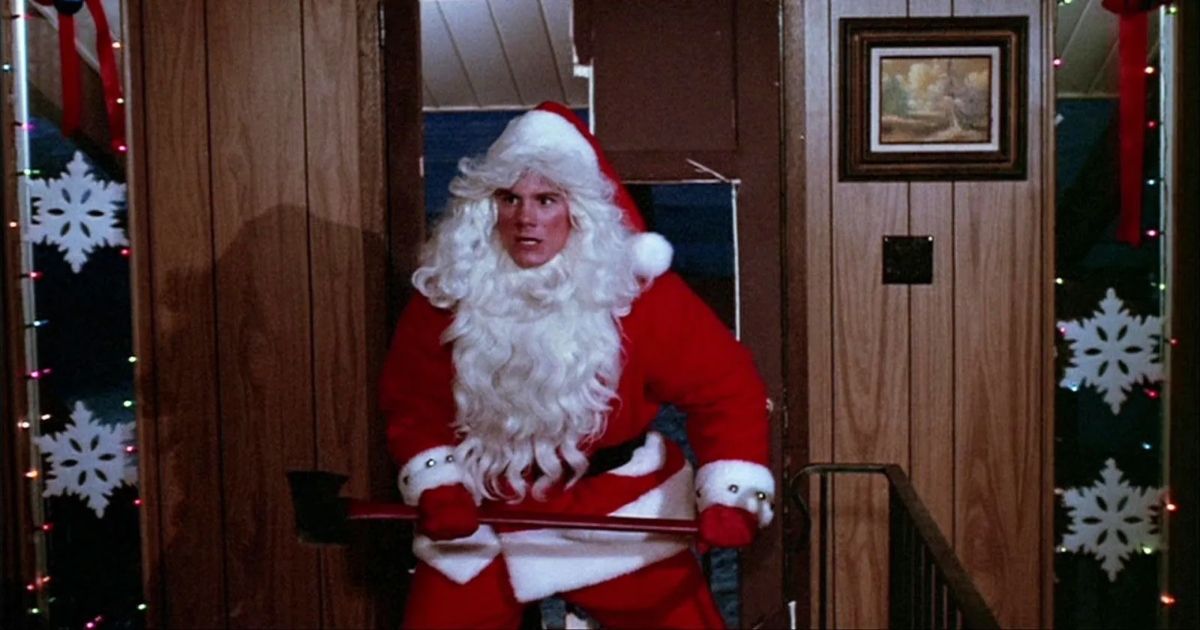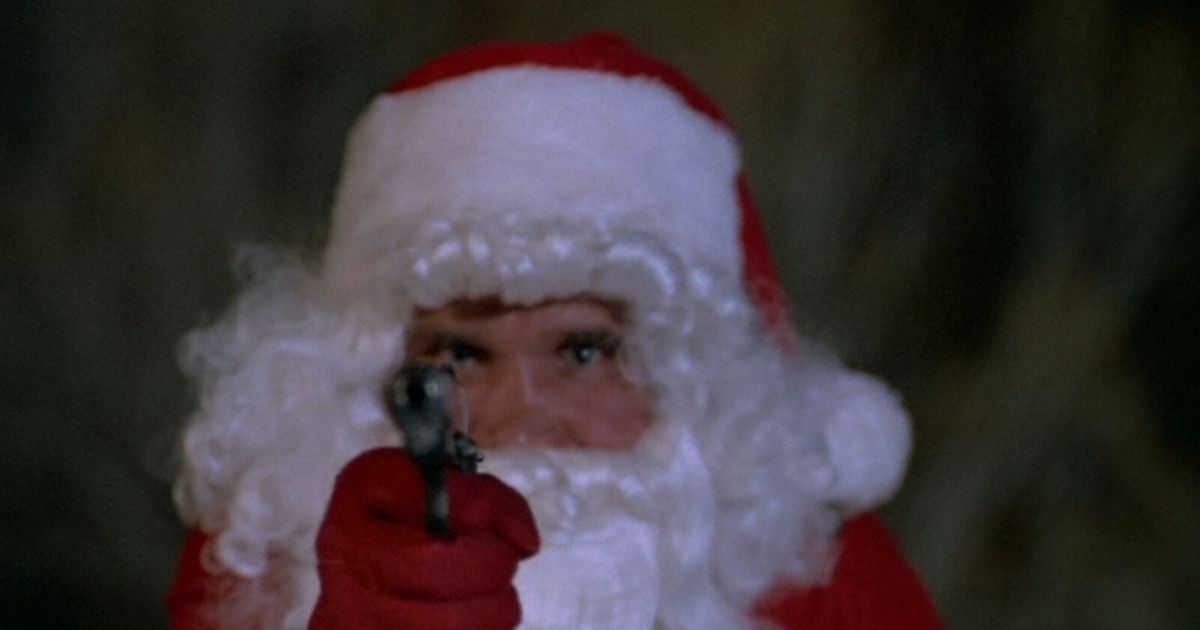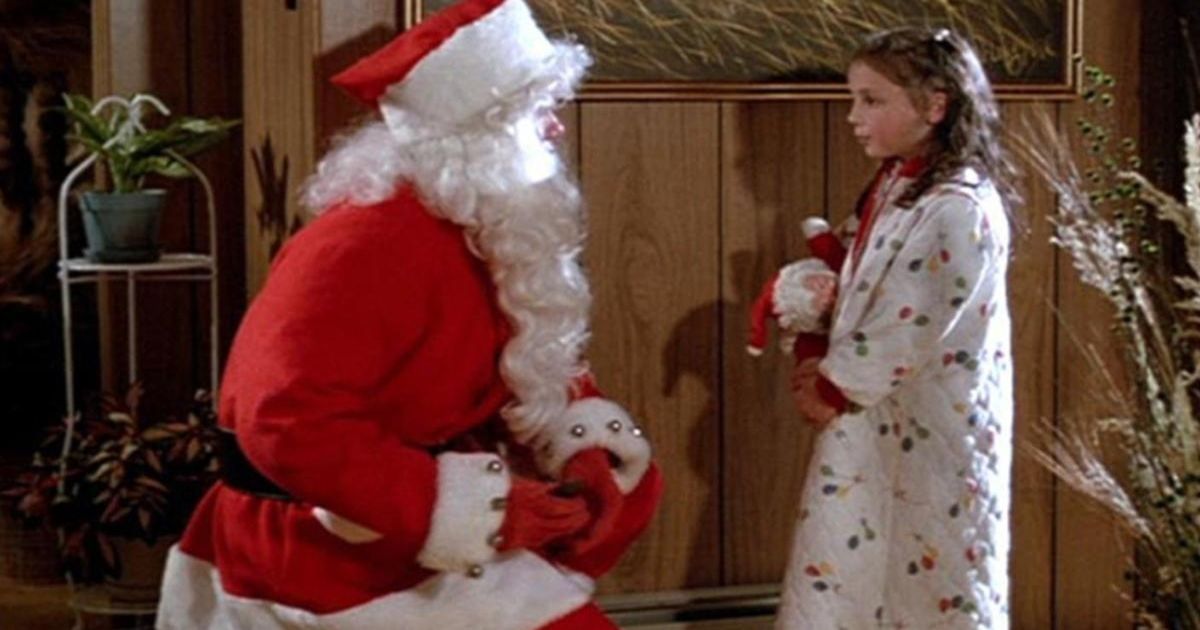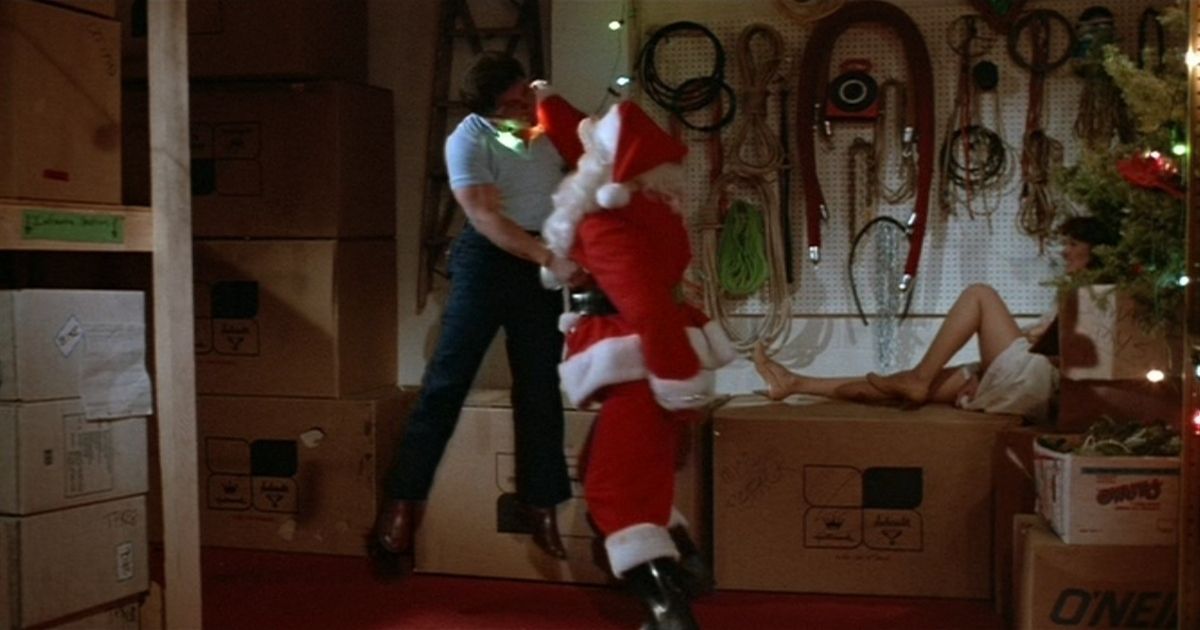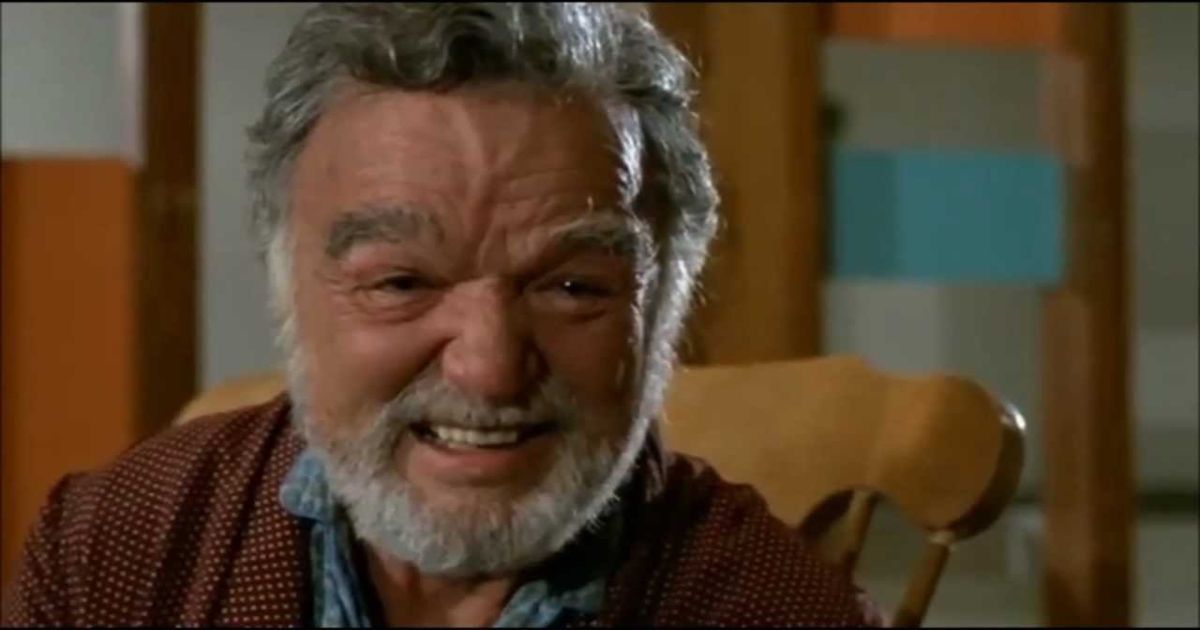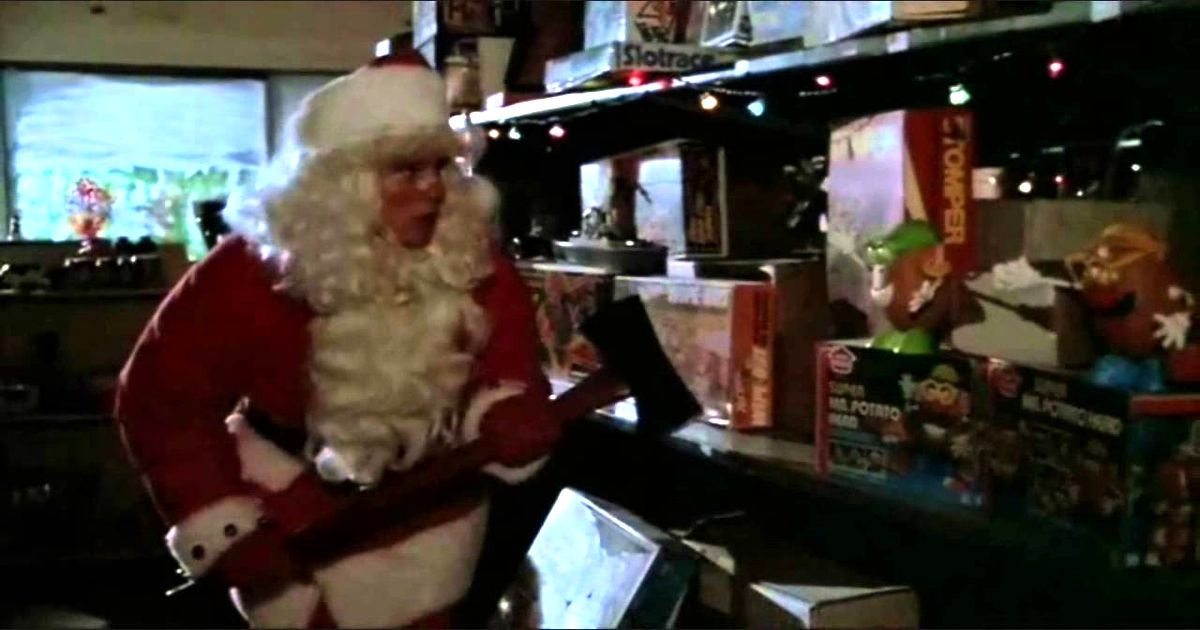Silent Night, Deadly Night released during the holiday season in 1984, and with it followed a slew of criticism and controversy all across the board. Some fans of the horror genre loved it; others were appalled by its blatant antagonizing of the Santa Claus figure and considered it offensive to Christmas as a whole. Film critics also had their opinions on the film, deeming it blasphemous to a downright display of distasteful cinema. Nevertheless, it has garnered a cult following throughout the years; there was a loose remake released in 2012 starring Malcolm McDowell, and it has become an overall icon of the slasher genre. Here's a revisiting of the classic '80s Christmas horror movie, Silent Night, Deadly Night.
Billy: The Byproduct of Social Services
Billy Chapman's journey towards becoming a serial killer starts off nightmarishly. After driving home from visiting his mentally ill grandfather on Christmas Eve night, five-year-old Billy's family is pulled over by a violent convict donning a Santa Claus suit. The assailant ambushes his family's car, murders his father, and sexually assaults his mother before murdering her as well, all before Billy's eyes. Four years later, Billy and his younger brother, Ricky, are living in a religious orphanage, where Billy shows signs of trauma from his past ordeal along with general mental development issues.
Ostracized by his peers and neglected by the nuns meant to nurture him, Billy's trauma further builds as he's subjected to mental and physical abuse from the Mother Superior. Shortly after his eighteenth birthday, Billy is hired at a department store and attempts to adjust normally, which works for some time, until he witnesses a reenactment of the assault committed against his mother years back. Reaching his breaking point, Billy kills his coworker, the assaulter, and continues forward with a Christmas night killing spree. Billy's mental break-down is the result of a chain of events, most of which could have been avoided had Billy received proper treatment for his initial childhood trauma.
A Failed System
Billy is a byproduct of a failed system. His childhood consists of neglect all across the board; from his trauma being unaddressed by a proper healthcare professional, threats and beatings being administered by the Mother Superior, and lastly, his mental development being stunted by a lack of emotional support; Billy never gets the chance to overcome the memory of that fateful Christmas night that cost him his parents, and as a result, a chance at a normal upbringing. Social services turned a blind eye to Billy and left him to continue a life of being the victim, until he became the aggressor.
Societal Rejection
Billy is socially rejected by everyone, from his peers at the orphanage, his coworkers, to even his guardian nuns. He is often referred to as mentally unstable by his peers, over which only his younger brother defends him. The Mother Superior holds him in contempt over his expressions of trauma, including his violent drawings and his outburst at the sight of Santa Claus. At work, his coworkers keep their distance due to Billy's social introversion. Notably, Billy rejects himself over his sexual desire for his coworker, Pamela, considering the feelings a social deviance over a normal part of the human process.
A Gory Take on Sexual Repression
Ultimately, it's a sexual act that offsets Billy's rampage. While a great part of the trigger response is due to reliving his own mother's assault and death, Billy is overtaken by his own sexual repression. He longs for sexual intimacy with Pamela, or anyone. Nevertheless, Billy never allows himself sexual expression, so he resorts to the other viable expression: violence, especially towards anyone expressing themselves sexually. He kills Pamela because she represents one of the most reprehensible feelings to him: sexual desire. In the wake of his murders, Billy strikes down a couple about to have sex. Ultimately, Billy's final sexual repression response is attempting to kill the person who has forbidden him from experiencing sex itself: Mother Superior. Billy's rampage is a coping mechanism for all his underlying trauma.
Inherited Mental Illness
At the beginning of the film, Billy and his family visit his mentally ill grandfather at a nursing home in Utah. Though the illness itself is never specified, it is definitely a form of mental illness highlighted when the grandfather warns Billy of Santa Claus's punitive nature towards the naughty. Billy's killing spree is influenced primarily by his trauma, but he is also suffering from an undiagnosed mental illness. Whether it is from his life experiences or inherited, or maybe both factors, is undeterminable based on the script's dialogue itself, but the question remains open to interpretation.
A Worthy Slasher
Silent Night, Deadly Night's controversy aside, it's still an entertaining slasher watch. Billy is an unsettling character study of a human being pushed to their breaking point. Unlike many slashers, where a killer's identity is mysterious and adds another layer of horror, Billy's backstory is thoroughly explored. Audiences see him go through his journey from a small boy unexposed to the dangers of the world to a serial killer with no semblance of reason left within him. Silent Night, Deadly Night is as horrific as it is a cautionary tale of what violence, trauma, and repression can do to a single person, even when they start off as an innocent bystander.

